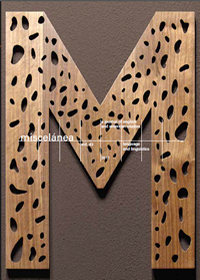Metaphor and Ideology in the Business Press: The Case of the Endesa Takeover
DOI:
https://doi.org/10.26754/ojs_misc/mj.20119284Palabras clave:
metáfora, ideología, campo conceptual, mapeo, evaluaciónResumen
La ideología está presente en el lenguaje (Fairclough 1989) y se plasma en una serie de recursos lingüísticos. La metáfora es uno de esos recursos, como se ha demostrado en investigaciones recientes (Fairclough 1992; Dirven y Frank 2001). En este artículo exploramos la base metafórica del discurso periodístico español y británico sobre un tema empresarial concreto -la adquisición de Endesa- y el modo en que opera la ideología. Los datos empíricos para nuestro estudio se han extraído de dos periódicos (El País, Financial Times) publicados durante un periodo que va de septiembre de 2005 a abril de 2007. Nuestra hipótesis principal es que la metáfora tiene un valor ideológico que se manifiesta a través de la axiologización positiva o negativa de la adquisición.
Descargas
Referencias
Barcelona, Antonio. 2000. “The cognitive theory of metaphor and metonymy”. In Barcelona, A. (ed.) Metaphor and Metonymy at the Crossroads. Berlin: Mouton de Gruyter: 1-28.
Boers, Frank. 1999. “When a bodily source domain becomes prominent. The joy of counting metaphors in the socio-economic discourse”. In Gibbs, R. and G. Steen (eds.) Metaphor in Cognitive Linguistics. Amsterdam: John Benjamins: 47-56.
Cubo de Severino, Luis et al. 2001. “Globalisation for beginners in Argentina: A cognitive approach”. In Dirven, R. and R. Frank (eds.) Language and Ideology Vol. II: Descriptive Cognitive Approaches. Amsterdam: John Benjamins: 215-233.
Dirven, René and Roslyn FRANK (eds.) 2001. Language and Ideology Vol. II: Descriptive Cognitive Approaches. Amsterdam: John Benjamins.
Fairclough, Norman. 1989. Language and Power. London: Longman.
—. 1992. Discourse and Social Change. Cambridge: Polity Press.
Gibbs, Raymond. 1989. Figurative Thought, Language and Understanding. Cambridge: Cambridge University Press.
Herrera, Honesto and Michael White. 2000. “Cognitive linguistics and the language learning process. A case from economics”. Estudios Ingleses de la Universidad Complutense 8: 55-78.
—. 2002. “Business is war or the language of takeovers”. In Forés, M., J. M. Molina and L. Pérez. Pragmática y Análisis del Discurso. Panorama Actual de la Lingüística Aplicada: Conocimiento, Procesamiento y Uso del Lenguaje. Vol. 1. Logroño: Universidad de la Rioja: 231-239.
—. 2005. “Metaphor and ideology in the press coverage of telecom corporate consolidations”. In Dirven, R., R. Frank and M. Pütz. Cognitive Models in Language and Thought: Ideologies, Metaphors and Meanings. Berlin: Mouton de Gruyter: 277-323.
Koller, Veronica. 2008. “Brothers in arms. Contradictory metaphors in contemporary marketing discourse”. In Zanotto, M. S., L. Cameron and M. C. Cavalcanti. Confronting Metaphor in Use. An Applied Linguistics Approach. Amsterdam: John Benjamins: 103-125.
Lakoff, George.1987. Women, Fire and Dangerous Things: What Categories Reveal about the Mind. Chicago: University of Chicago Press.
—. 2006. “The contemporary theory of metaphor”. In Geeraerts, D. (ed.) Cognitive Linguistics: Basic Readings. Berlin: Mouton de Gruyter: 186-238.
Lakoff, George and Mark Johnson. 1980. Metaphors we Live By. Chicago: Chicago University Press.
Lakoff, George and Mark Turner. 1989. More than Cool Reason: A Field Guide to Poetic Metaphor. Chicago: University of Chicago Press.
Mussolf, Andreas. 2004. Metaphor and Political Discourse. Analogic Reasoning in Debates about Europe. New York: Palgrave.
Richardt, Susanne. 2003. “Metaphors in expert and common-sense reasoning”. In Zelinsky- Wibbelt, C. (ed.) Text, Context, Concepts. Berlin: Mouton de Gruyter: 243-296.
Descargas
Publicado
Número
Sección
Licencia
Derechos de autor 2012 Isabel Negro Alousque

Esta obra está bajo una licencia internacional Creative Commons Atribución-NoComercial 4.0.


